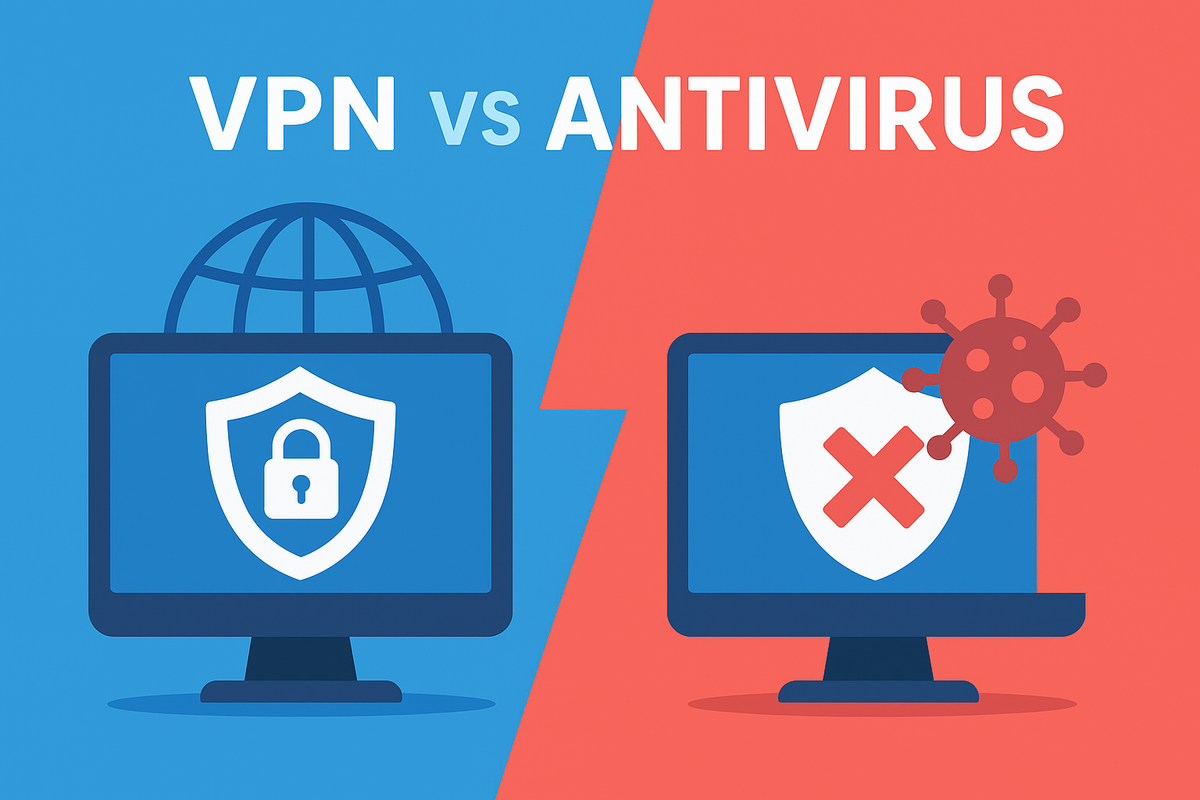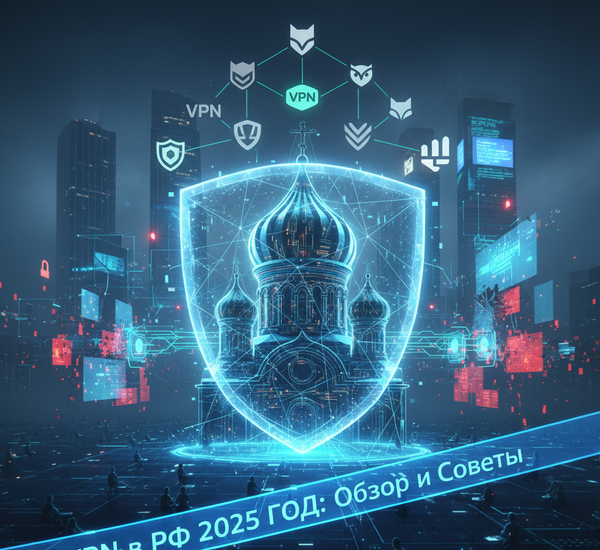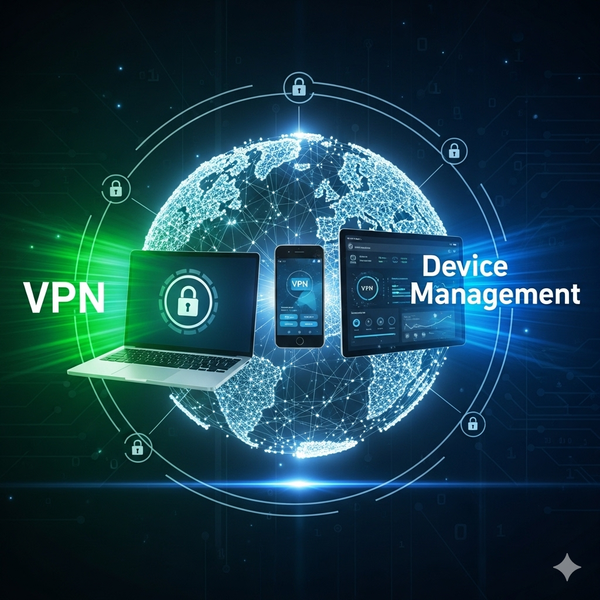VPN vs Antivirus: Which One Truly Protects You Online?

1. Introduction
In today’s digital age, online security is no longer optional — it’s essential. Every day, millions of users face threats ranging from malware infections to data breaches and identity theft. As a result, many people wonder: VPN vs antivirus — which one should I rely on to stay safe online?
While antivirus software has long been considered a staple for protecting computers against viruses and malware, VPNs are gaining popularity for their ability to secure online privacy, encrypt data, and even grant access to blocked websites. Understanding the differences between these two tools is crucial. Choosing the right approach can mean the difference between keeping your personal information safe or leaving yourself vulnerable to cyber attacks.
Moreover, today’s internet users are increasingly seeking solutions that combine safety, privacy, and convenience. For instance, a reliable VPN can protect your data from hackers, let you browse anonymously, and even allow access to websites that may be restricted in your region. If you want to explore a VPN option that offers 3 days of free access, supports up to 5 devices, and ensures secure access to blocked sites, you can check out this VPN service.
In this article, we will dive deep into the world of antivirus software and VPNs, examine their key differences, and help you determine which tool (or combination) is best suited to safeguard your digital life.
2. Understanding Antivirus Software
Antivirus software has been a cornerstone of computer security for decades. Its main purpose is to detect, prevent, and remove malicious software, including viruses, worms, trojans, spyware, and ransomware. For many users, antivirus programs provide a sense of safety by scanning files, monitoring downloads, and blocking potential threats before they can harm your system.
Antivirus software works by identifying known malware signatures and analyzing suspicious behaviors. Modern antivirus solutions often include features such as real-time protection, automatic updates, and scheduled scans. This makes them effective at protecting your devices from a wide range of cyber threats.
However, antivirus programs have limitations. While they are excellent at protecting your system from malware, they do not hide your IP address, encrypt your internet traffic, or allow access to blocked websites. This is where the debate of VPN vs antivirus becomes particularly relevant. Relying solely on antivirus software can leave gaps in your online security, especially when it comes to privacy and unrestricted internet access.
For users who want an extra layer of protection, combining antivirus software with a VPN can be highly effective. A VPN not only encrypts your data but also protects your online activities from tracking and allows you to access content that might otherwise be unavailable. Services like this VPN offer a 3-day free trial and support for up to 5 devices, making it easy to enhance your security alongside your antivirus software.
Understanding what antivirus software can and cannot do is the first step toward making an informed choice about your online security strategy.
3. Understanding VPN (Virtual Private Network)
A VPN, or Virtual Private Network, is a tool designed to protect your online privacy and security by creating an encrypted connection between your device and the internet. Unlike antivirus software, which focuses on detecting and removing malware, a VPN primarily shields your personal data and online activities from hackers, ISPs, and government surveillance.
When you use a VPN, your IP address is masked, and your internet traffic is encrypted. This means that anyone trying to monitor your online behavior will see only a secure, scrambled connection rather than your real activity. Additionally, VPNs allow users to bypass geo-restrictions, enabling access to websites and services that may be blocked in certain regions. This makes them particularly valuable for streaming, secure remote work, and protecting sensitive information on public Wi-Fi networks.
The comparison of VPN vs antivirus often highlights a crucial distinction: antivirus protects against malware threats on your devices, while a VPN ensures privacy and secure communication over the internet. Many users realize that relying solely on antivirus is not enough in today’s digital environment — especially if you frequently connect to public networks or need access to restricted websites.
For instance, using a VPN like this service offers multiple advantages: it provides 3 days of free access, supports up to 5 devices on one subscription, and ensures both data protection and access to blocked sites. By integrating a VPN into your security setup, you can enjoy both safety from malware (via antivirus) and privacy from online tracking, achieving a more comprehensive security solution.
4. VPN vs Antivirus: Key Differences
When comparing VPN vs antivirus, it’s important to understand that these two tools serve fundamentally different purposes. While both enhance online security, they do so in distinct ways.
Protection Scope
Antivirus software is designed to protect your devices from malware, viruses, spyware, and ransomware. It scans files, monitors downloads, and blocks malicious software from infecting your system. However, it does not hide your online identity or encrypt your internet traffic.
A VPN, on the other hand, focuses on privacy and secure internet connections. It encrypts your data, masks your IP address, and ensures that your online activities remain private. While it won’t scan for viruses, it significantly reduces the risk of data interception, especially on public Wi-Fi networks.
Online Anonymity
Antivirus programs do not provide anonymity. Your IP address, location, and online behavior can still be tracked by websites and internet service providers. A VPN, however, allows you to browse anonymously, bypass geo-restrictions, and access blocked content safely.
Use Cases
- Antivirus: Ideal for protecting your system from malware, ensuring that downloaded files and email attachments are safe.
- VPN: Essential for maintaining online privacy, accessing restricted content, and safeguarding data when using public networks.
The debate of VPN vs antivirus often leads many users to realize that neither solution alone is sufficient for full protection. Antivirus defends against malware, while a VPN shields your privacy and helps bypass online restrictions. Combining the two offers a stronger defense against a wide range of digital threats.
For those seeking a reliable VPN to complement their antivirus, this service offers a 3-day free trial, supports up to 5 devices, and provides access to blocked websites while keeping your data secure. Using a VPN alongside antivirus software ensures you’re covered both in terms of device safety and online privacy.
5. Why You Might Need Both
In the discussion of VPN vs antivirus, it’s easy to assume you must choose one over the other. However, the truth is that using both together provides the most comprehensive protection for your digital life. Each tool covers gaps the other leaves exposed.
Antivirus software keeps your devices safe from malware, ransomware, and other malicious attacks, while a VPN secures your online privacy, encrypts data, and allows access to blocked websites. By combining them, you ensure both device-level protection and network-level security.
Consider real-life scenarios:
- When connecting to public Wi-Fi, a VPN encrypts your data, preventing hackers from intercepting sensitive information like passwords or banking details.
- When downloading files or opening email attachments, antivirus software scans for malware to prevent infections that could compromise your device.
- Accessing streaming platforms or websites restricted in your country is possible with a VPN, while antivirus ensures your device remains safe during downloads or streaming sessions.
Many security experts recommend this layered approach: antivirus handles threats from the files and programs you interact with, while a VPN protects your privacy and online presence. Together, they create a digital shield that addresses both internal and external risks.
For users looking to strengthen their online security, a dependable VPN like this service can complement antivirus protection. It offers 3 days free access, supports up to 5 devices, and ensures that your online activity stays private while allowing you to access blocked content. Using both tools together is a practical and effective strategy to stay safe in today’s connected world.
6. Choosing the Right VPN
Selecting the right VPN is just as important as having antivirus software. With countless options on the market, it’s essential to understand which features truly enhance your online security and privacy.
Strong Encryption and Security Protocols
A good VPN should use advanced encryption methods, such as AES-256, to protect your data from hackers and eavesdroppers. Security protocols like OpenVPN or WireGuard ensure a reliable and fast connection without compromising safety.
Multi-Device Support
Many users access the internet on multiple devices, from smartphones to laptops. A VPN that supports several devices under one subscription offers convenience and comprehensive protection. For example, this VPN allows you to connect up to 5 devices simultaneously, ensuring all your devices stay secure.
Access to Blocked Content
One of the main advantages of a VPN is bypassing geo-restrictions. Whether you want to watch international streaming content, access websites restricted in your country, or protect your freedom online, a VPN can make it possible without compromising security.
Free Trial and Easy Setup
Trying a VPN before committing is always a good idea. Many services provide free trials to test speed, reliability, and usability. For instance, this VPN offers 3 days of free access, making it simple to evaluate the service before subscribing.
Reliability and Speed
A VPN should maintain fast connection speeds while encrypting your data. Reliable servers distributed globally reduce lag and provide smooth browsing, streaming, and downloading experiences.
By considering these factors, you can choose a VPN that complements your antivirus software perfectly. The combination of both ensures that your devices remain safe from malware while your online activities stay private and unrestricted.
7. Conclusion
The debate of VPN vs antivirus is not about choosing one over the other; it’s about understanding their unique roles in online security. Antivirus software is essential for protecting your devices from malware, ransomware, and other malicious threats, while a VPN ensures your privacy, encrypts your data, and allows access to blocked websites.
By combining both tools, you achieve a comprehensive security solution. Antivirus handles threats at the device level, whereas a VPN safeguards your online presence and data, especially on public networks. This layered approach addresses both internal and external risks, giving you peace of mind in an increasingly connected world.
For anyone looking to enhance their online security, integrating a reliable VPN alongside antivirus software is highly recommended. Services like this VPN provide 3 days of free access, support up to 5 devices, and allow secure access to blocked sites while keeping your personal data protected. With the right combination of antivirus and VPN, you can surf the web confidently, knowing your devices and privacy are well-protected.
In conclusion, the modern internet user doesn’t have to choose between VPN and antivirus — they need both. Understanding their differences and how they complement each other is the key to maintaining a safe, private, and unrestricted online experience.


